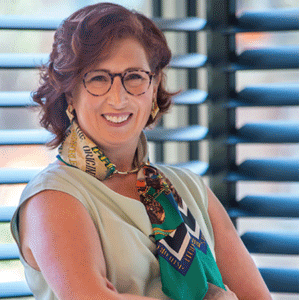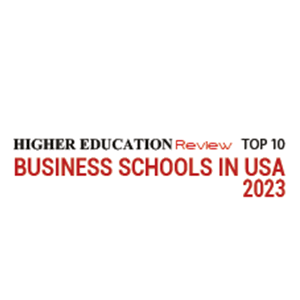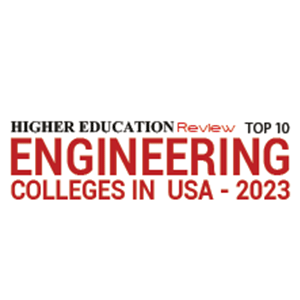With technology advancing at an exponential rate, the effects on the job market have been profound—particularly in STEM-oriented occupations, where there is an increasing emphasis on personal skills. To stay relevant in training human capital in a world where up-to-date knowledge has become so fluid, it is imperative that academic institutions read just learning outcomes and adapt the educational process as a whole. This can be done by first defining the desired ‘output’ of the educational process and only then looking at how the educational process itself needs to change to achieve this outcome. Projectbased learning has importantly helped to transform engineering education over the last decades, as it has been increasingly applied worldwide, as a fundamental methodology for shifting to student-centred engineering programmes. Tulane University, located in New Orleans, Louisiana, prides itself on being a hometown hero and an entrepreneur on the cutting edge of life-changing technologies. The university regards its students as Tulanians who strive to make people's lives better both locally and globally and who view obstacles as opportunities.
Tulane University, founded in 1834 as The Medical College of Louisiana to train New Orleans doctors in the fight against yellow fever and cholera, has a long history of pioneering research. The university now offers over 75 majors and minors, providing many undergraduate study opportunities. The core curriculum is wellrounded and interdisciplinary, exposing students to the humanities, fine arts, social sciences, and sciences. TIDES (Tulane Interdisciplinary Experience Seminar) provides students with an academic lens through which to view their new home, New Orleans, during their first year.
Despite the fact that engineering schools all over the world have been at the forefront of change on various levels, it is now imperative for institutions to embrace a paradigm shift. Tulane University maintains a strong relationship with local industry, as evidenced by the engineering curriculum. All Tulane engineering students complete a capstone design experience in which they work on a relevant project with practising engineers at local industrial facilities, consulting firms, hospitals, or government agencies. The projects are open-ended, and students are expected to apply good design principles that include realistic constraints such as economics, engineering standards, safety, reliability, aesthetics, ethics, and social impact. Seminars frequently feature industry experts.
Many of Tulane's engineering courses include design projects as part of the university's public-service experience, which is a collaborative partnership between the university and local, national, and international communities and partner organisations. These one-of-a-kind experiences provide opportunities for lifelong learning, preparing our students to be successful professionals. Classes are kept small and taught by subject matter experts.
Tulane's educational experience revolves around its students. Tulane University allows students to grow into the world-changers they are meant to be through a collaborative learning environment rich in opportunities to learn hands-on, iterate solutions, and discover new passions. An active industry advisory board is present in each engineering programme. The programmes include industry-standard software as part of the curriculum. There are built-in opportunities to gain real-world experience, such as required research projects or internships, which are available and required for graduation in some programmes. Tulane University has an active engineering alumni network and campus community.
Students must participate in service learning. They have access to departmental seminars as well as campus-wide seminars such as the Innovation Institute seminar. Through coursework, students can develop their engineering skills using tools like CAD, specialized machinery (like laser cutters and CNC), and optional extra training at makerspaces.All Tulane engineering students complete a common core curriculum that provides a breadth of knowledge and a global perspective to the discipline, in addition to a major-specific curriculum and a strong foundation in math and science. Through research opportunities, students have access to cutting-edge research. Every undergraduate participates in at least two service learning opportunities.
Even faculty recruiting is a highly competitive process. In addition to research area/expertise/activity being key evaluation criteria, at all steps in a faculty member’s career, the importance of undergraduate and graduate education is highly emphasized. The faculty as a group regularly evaluate the curriculum, teaching methodologies, and the need for developmental courses. The faculty have access to professional development related to teaching through CELT, Tulane’s centre for engaged learning and teaching. The Data Hub is a university-wide academic initiative developed to address the challenges of a data-driven world, while the new Tulane Innovation Institute will integrate numerous initiatives at Tulane into one unit, strengthening the institution and expanding student opportunities.
Kimberly Foster (formerly Turner) grew up in the Upper Peninsula of Michigan, receiving her Bachelor of Science degree in Mechanical Engineering from Michigan Technological University in 1994. Kimberly then studied Theoretical & Applied Mechanics at Cornell University, receiving a PhD in 1999. She has over 175 refereed publications in journals including Nature and PNAS. Her research has been featured on TV shows, NPR (Canada), and many international publications. Kimberly has mentored 21 students to completion of PhD’s, and her interdisciplinary research has been funded by NSF, ARMY, AFOSR, DARPA, as well as the Keck Foundation. At Tulane, Kimberlyis committed to fostering a culture of convergent learning and research, including increasing research opportunities for students, creating a culture of lifelong learning, and embracing the intersection of the science and engineering disciplines.
Tulane University, founded in 1834 as The Medical College of Louisiana to train New Orleans doctors in the fight against yellow fever and cholera, has a long history of pioneering research. The university now offers over 75 majors and minors, providing many undergraduate study opportunities. The core curriculum is wellrounded and interdisciplinary, exposing students to the humanities, fine arts, social sciences, and sciences. TIDES (Tulane Interdisciplinary Experience Seminar) provides students with an academic lens through which to view their new home, New Orleans, during their first year.
Deriving Practical Experience for Students
Despite the fact that engineering schools all over the world have been at the forefront of change on various levels, it is now imperative for institutions to embrace a paradigm shift. Tulane University maintains a strong relationship with local industry, as evidenced by the engineering curriculum. All Tulane engineering students complete a capstone design experience in which they work on a relevant project with practising engineers at local industrial facilities, consulting firms, hospitals, or government agencies. The projects are open-ended, and students are expected to apply good design principles that include realistic constraints such as economics, engineering standards, safety, reliability, aesthetics, ethics, and social impact. Seminars frequently feature industry experts.
Many of Tulane's engineering courses include design projects as part of the university's public-service experience, which is a collaborative partnership between the university and local, national, and international communities and partner organisations. These one-of-a-kind experiences provide opportunities for lifelong learning, preparing our students to be successful professionals. Classes are kept small and taught by subject matter experts.
Course Offerings
Tulane's educational experience revolves around its students. Tulane University allows students to grow into the world-changers they are meant to be through a collaborative learning environment rich in opportunities to learn hands-on, iterate solutions, and discover new passions. An active industry advisory board is present in each engineering programme. The programmes include industry-standard software as part of the curriculum. There are built-in opportunities to gain real-world experience, such as required research projects or internships, which are available and required for graduation in some programmes. Tulane University has an active engineering alumni network and campus community.
Students must participate in service learning. They have access to departmental seminars as well as campus-wide seminars such as the Innovation Institute seminar. Through coursework, students can develop their engineering skills using tools like CAD, specialized machinery (like laser cutters and CNC), and optional extra training at makerspaces.All Tulane engineering students complete a common core curriculum that provides a breadth of knowledge and a global perspective to the discipline, in addition to a major-specific curriculum and a strong foundation in math and science. Through research opportunities, students have access to cutting-edge research. Every undergraduate participates in at least two service learning opportunities.
"Tulane university Allows students to Grow into the worldchangers They are Meant to be through a Collaborative learning Environment rich in Opportunities to learn Hands-on, iterate Solutions, and discover New passions"
Even faculty recruiting is a highly competitive process. In addition to research area/expertise/activity being key evaluation criteria, at all steps in a faculty member’s career, the importance of undergraduate and graduate education is highly emphasized. The faculty as a group regularly evaluate the curriculum, teaching methodologies, and the need for developmental courses. The faculty have access to professional development related to teaching through CELT, Tulane’s centre for engaged learning and teaching. The Data Hub is a university-wide academic initiative developed to address the challenges of a data-driven world, while the new Tulane Innovation Institute will integrate numerous initiatives at Tulane into one unit, strengthening the institution and expanding student opportunities.
Kimberly Foster, Dean, Tulane University
Kimberly Foster (formerly Turner) grew up in the Upper Peninsula of Michigan, receiving her Bachelor of Science degree in Mechanical Engineering from Michigan Technological University in 1994. Kimberly then studied Theoretical & Applied Mechanics at Cornell University, receiving a PhD in 1999. She has over 175 refereed publications in journals including Nature and PNAS. Her research has been featured on TV shows, NPR (Canada), and many international publications. Kimberly has mentored 21 students to completion of PhD’s, and her interdisciplinary research has been funded by NSF, ARMY, AFOSR, DARPA, as well as the Keck Foundation. At Tulane, Kimberlyis committed to fostering a culture of convergent learning and research, including increasing research opportunities for students, creating a culture of lifelong learning, and embracing the intersection of the science and engineering disciplines.




